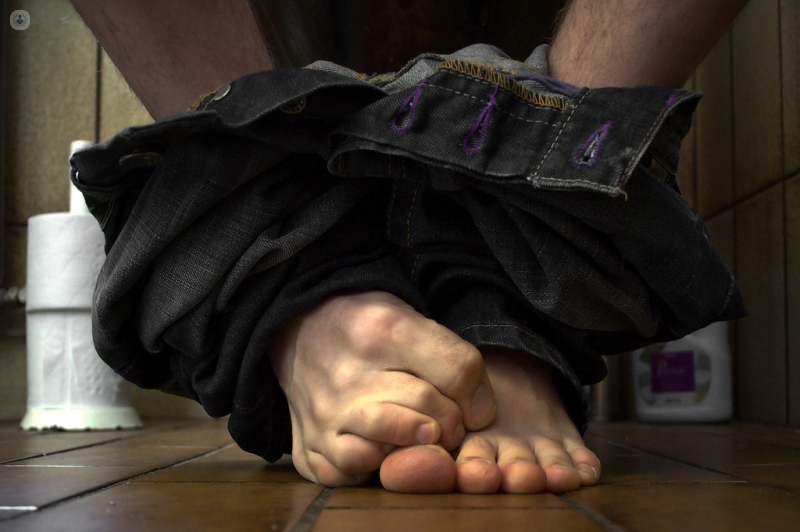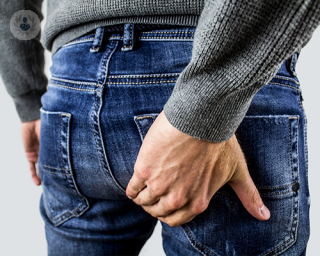Constipation
Professor Chris Summerton - Gastroenterology
Created on: 03-12-2013
Updated on: 06-14-2023
Edited by: Aoife Maguire

What is constipation?
The term “constipation” refers to infrequent bowel movements or difficulty passing stool. Constipation is usually defined as when a patient makes less than three bowel movements a week. These bowel movements may be difficult, even painful, and the individual may strain themselves trying to go.
Occasional constipation is common, and can be related to change of routine, going on holiday, or while taking medication. The body usually readjusts quickly and normal defecation rhythm is resumed. However, some people experience chronic (ongoing) constipation, which may require an examination by a doctor to rule out an underlying illness.
What are the symptoms of constipation?
The key symptoms of constipation are:
- Less than three bowel movements a week (apart from young infants – it is quite normal for breastfeeding babies to go a week without pooing)
- Poo is larger than usual and difficult to push out
- Poo is dry, hard, and lumpy
Constipation can also cause general discomfort, with sufferers feeling bloated, sick, or getting stomach aches. Some patients cause further discomfort by straining to push stools out. If the patient successfully defecates, they may feel as though they haven’t completely emptied their rectum.
Causes of constipation
There are many possible causes of constipation in adults, and sometimes there is no obvious cause.
Common causes include:
- Lack of fibre in the diet
- Not drinking enough fluid
- Sedentary lifestyle/not getting enough exercise
- Frequently not going to the toilet when you need to
- Changes to routine or diet
- Psychological factors, e.g. stress, anxiety, depression
- Side-effects of medication
Constipation is relatively common during and up to six weeks following pregnancy. In rarer cases, it may be caused by an underlying medical condition.
Such conditions include:
- Blockages of the colon or rectum – bowel obstructions, anal fissures and even tumours can block the passage of stool.
- Neurological problems – nerve diseases, including Parkinson’s and multiple sclerosis can affect the nerves controlling the muscles in the digestive tract that push faecal matter towards and out of the rectum.
- Problems with the muscles involved in bowel movements – weakened pelvic muscles or disorders that mean they don’t contract and relax in a coordinated way
- Conditions that affect hormones – certain conditions, including diabetes and even pregnancy affect the balance of fluids in the body, and this can lead to constipation.
Can constipation be prevented?
Leading a healthy lifestyle, with a diet rich in fibre can help prevent constipation. It is also advisable to drink plenty of fluids (about two litres of water a day), exercise regularly and go to the bathroom when you feel the urge to defecate, instead of holding it.
What is the treatment for constipation?
In most cases, lifestyle changes will resolve the problem:
- Increase the amount of fibre in your diet, e.g. cereals, fruit, vegetables.
- Increase fluid intake.
- Exercise more.
- Try to establish a regular toilet routine, and, if possible, don’t hold it in; go when you have the urge.
If these measures don’t work, the doctor may recommend laxatives to help stimulate bowel movements.

















